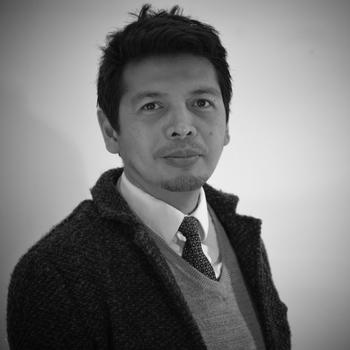meLê yamomo

Interweaving Performance Cultures
Fellow 2016/17
meLê yamomo held an Assistant Professorship of Theatre Studies at the University of Amsterdam and was formerly a researcher at the Deutsche Forschungsgemeinschaft (DFG) Kosseleck Project “Global Theatre Histories”. He completed his PhD in Theatre Studies and Musicology from Ludwig-Maximilians-Universität in Munich (Germany) and received a dual Masters in International Performance Research from the Universities of Amsterdam (Netherlands) and Warwick (UK) under a European Commission Erasmus Mundus scholarship. meLê is also a theatre director, composer and designer, and has done projects in Asia, Europe and Australia. [www.meleyamomo.com]
Research Project
Globalization in Cylinders: Recording Asian Sounds on the European Stage, 1890-1910
In September 1900, Carl Stumpf, professor of psychology, recorded the guest performance of a Siamese music theatre group in Berlin on an Edison cylinder with the help of the physicist Otto Abraham. The following year, Stumpf also recorded the performance of Kawakami Otojiro and Sada Yacco, a visiting Japanese theatre troupe. The technology that allowed the acoustic recording of cross-cultural encounters of theatrical and musical performances on European stages would not only allow the documentation of sound data for the first time—these sound recordings would lead to the creation of the Berlin Phonogram Archive. The archiving of non-European musical practices and the ability to study them as sound media also unintentionally established the discipline of ethnomusicology.
In my research, I will reexamine these sound archival media as cross-cultural performative negotiations via the imaginings (or auditionings, to use a sonic metaphor) of early twentieth-century European audiences concerning the Asian landscape of music and theatre. I want to reevaluate how the ‘technological’ shift of sound recording from symbolic European music notation system (often inadequate in transcribing non-European musical practice) to replayable analog sound data of music from other cultures was crucial to the aesthetic development of a global musical and theatrical modernism. If we are to understand the early intercultural aesthetic processes that resulted in the early replayable mediatization of theatrical and musical encounters, we have to foreground their epistemological shift from a cross-cultural music/dramatic semantic engagement to an inter-medial discourse; from dramatic/musical hermeneutics to sound media/performance analysis.
Recommended Publications
- Ernst, Wolfgang. Digital Memory and the Archive. Minneapolis, London: University of Minnesota Press, 2013.
- Sterne, Jonathan. The Audible Past: Cultural Origins of Sound Reproduction. Durham and London: Duke University Press, 2003.
- yamomo, meLê. “Brokering Sonic Modernities: Migrant Manila Musicians in the Asia Pacific, 1881-1948.” Popular Entertainment.
